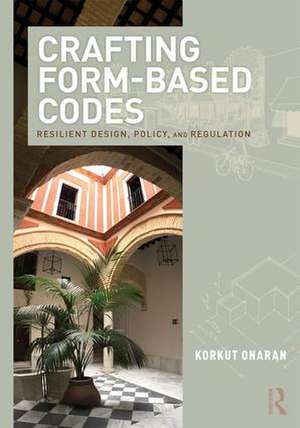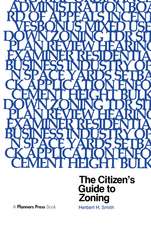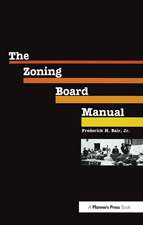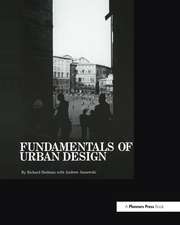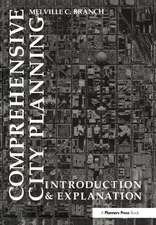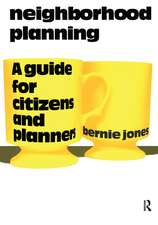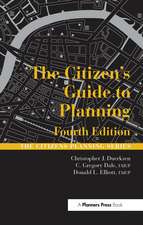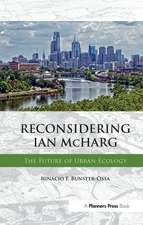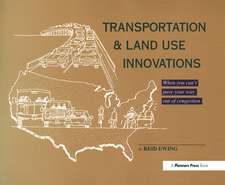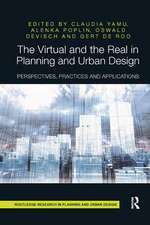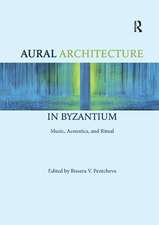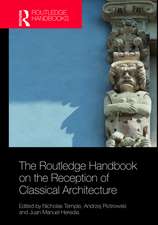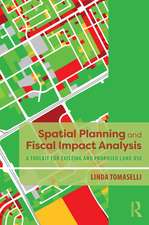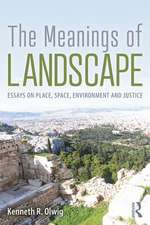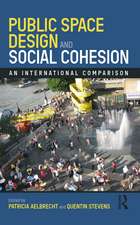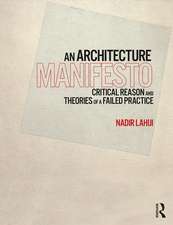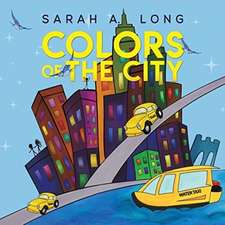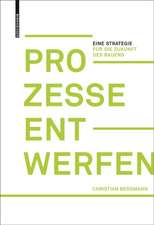Crafting Form-Based Codes: Resilient Design, Policy, and Regulation
Autor Korkut Onaranen Limba Engleză Paperback – 10 oct 2018
This book’s purpose is twofold: (a) to provide a theoretical framework that clarifies why working within dynamic legal systems in local democracies is a necessity today for practitioners of urban planning and design, and how crafting dynamic rules may facilitate effective communication which is crucial within these cultures; and (b) to provide simple tools for crafting dynamic rules in form-based codes that can not only facilitate form-based consensus, but also address issues of sustainability and response to the climatic properties.
Preț: 335.96 lei
Preț vechi: 393.13 lei
-15% Nou
Puncte Express: 504
Preț estimativ în valută:
64.31€ • 69.87$ • 54.05£
64.31€ • 69.87$ • 54.05£
Carte tipărită la comandă
Livrare economică 21 aprilie-05 mai
Preluare comenzi: 021 569.72.76
Specificații
ISBN-13: 9780815365020
ISBN-10: 0815365020
Pagini: 158
Ilustrații: 5 Tables, black and white; 13 Line drawings, black and white; 68 Halftones, black and white; 81 Illustrations, black and white
Dimensiuni: 178 x 254 x 8 mm
Greutate: 0.34 kg
Ediția:1
Editura: Taylor & Francis
Colecția Routledge
Locul publicării:Oxford, United Kingdom
ISBN-10: 0815365020
Pagini: 158
Ilustrații: 5 Tables, black and white; 13 Line drawings, black and white; 68 Halftones, black and white; 81 Illustrations, black and white
Dimensiuni: 178 x 254 x 8 mm
Greutate: 0.34 kg
Ediția:1
Editura: Taylor & Francis
Colecția Routledge
Locul publicării:Oxford, United Kingdom
Public țintă
Postgraduate, Professional, Professional Practice & Development, and UndergraduateCuprins
Chapter 1: Introduction Chapter 2: The traffic light versus the officer Chapter 3: Informalization and the intellectual forces behind it Chapter 4: Challenges of informalization and the Vivant Cycle Chapter 5: Effective communication in interactive review processes Chapter 6: Archetypes and typologies Chapter 7: Crafting of lot types Chapter 8: Transect-based organization of a code that uses lot types Chapter 9: Dynamic lot types and tools to craft them Chapter 10: Coding for resilience Chapter 11: Conclusion
Notă biografică
Korkut Onaran is a Founder Principal of Pel-Ona Architects and Urbanists. He also teaches as adjunct faculty at the College of Architecture and Planning, University of Colorado at Denver, USA. Urbanism, regulation cultures, and development codes have been a focus of his teaching and practice.
Recenzii
"Outdated regulatory regimes waste time, create uncertainty, and too often compromise design quality. With a keen anthropological lens, Onaran explains the evolution and limitations of conventional code practice and offers practical remedies built on the best attributes of form-based codes. This book argues the strongest case to date for form-based approaches and is a must-read for those who care about the design of authentic and resilient places and the processes involved in crafting them." – Peter Park, Director, Peter J. Park, LLC, City Planning and Design, USA
"Onaran’s book offers a clear view of both the methods and potential of well-framed and well-applied form-based codes. He focuses less on deep theory and more on principles and practical applications as he invites designers, planners and regulators to become well acquainted with what will surely become the zoning tool of choice in the 21st century." – Stefanos Polyzoides, Partner, Moule & Polyzoides Architects and Urbanists, USA
"Onaran’s book offers a clear view of both the methods and potential of well-framed and well-applied form-based codes. He focuses less on deep theory and more on principles and practical applications as he invites designers, planners and regulators to become well acquainted with what will surely become the zoning tool of choice in the 21st century." – Stefanos Polyzoides, Partner, Moule & Polyzoides Architects and Urbanists, USA
Descriere
This book provides practical tools for creating form-based rules that help facilitate effective communication and consensus building, which are essential to ensuring healthy democratic processes in a regulatory culture.
